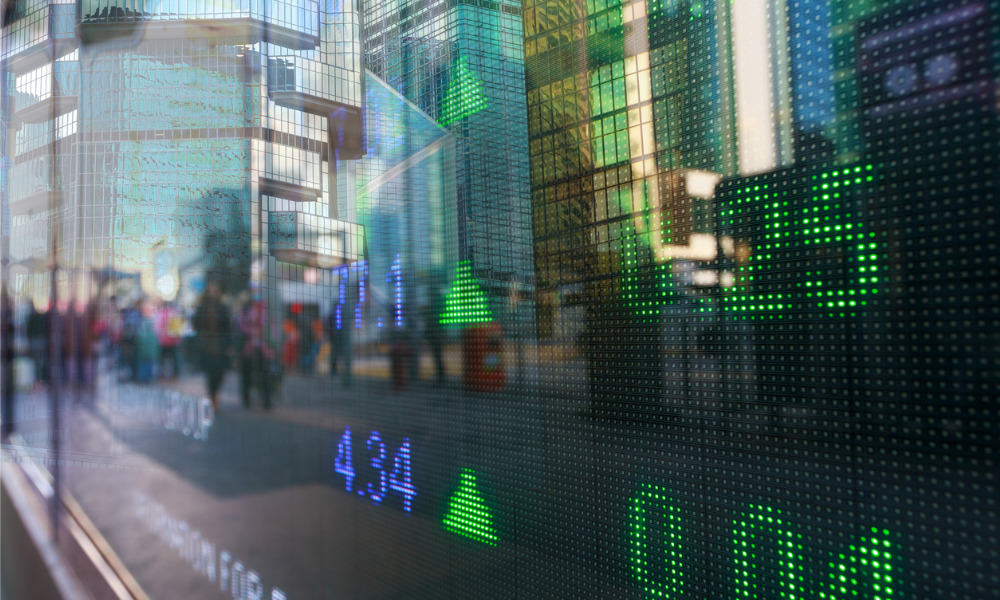

The main federal government pension will exclude investments in Hong Kong, in addition to mainland China, from its $68 billion international fund, amid rising tensions between the world’s two largest economies.
The $771 billion Federal Retirement Thrift Investment Board said it will switch the benchmark index for its international fund, effectively ridding exposure to Hong Kong, according to a statement Tuesday. It already avoids investments on the mainland.
The change comes amid heightened geopolitical tensions, as Washington is trying to prevent China from acquiring high-end computer chips and imposed curbs on U.S. investments in the world’s second-largest economy. Other pensions have also trimmed back China exposure in recent years.
The so-called I fund, which manages pensions for nearly 7 million federal employees, is shifting to the MSCI All Country World ex-USA ex-China ex-Hong Kong Investable Market Index next year. The fund was previously benchmarked against the MSCI Europe, Australasia and Far East Index.
“If the current investment restrictions on China are the beginning of further restrictions spanning China and Hong Kong investments, this level of uncertainty can outweigh the benefits of expanding the I Fund to include China and retaining exposure to Hong Kong,” it quoted consultancy Aon in the statement.
Investment restrictions on sensitive Chinese industries, delisting of Chinese companies from US exchanges, and sanctions on Russian securities have led to transaction costs and swings in returns, it added.
The Federal Retirement Thrift Investment Board is the largest U.S. defined contribution pension plan, according to Pensions & Investments.
President Joe Biden is meeting with Chinese President Xi Jinping in a much-anticipated sitdown on the sidelines of the Asia-Pacific Economic Cooperation summit that kicks off Wednesday.
Chinese officials are likely to seek the rollback of export controls, tariffs and restrictions on investments in the US. Ahead of the meeting, Biden said his goals included helping China’s struggling economy, provided that growth didn’t come at the expense of US intellectual property.
A number of North American pensions have curbed China investments. They include the $184 billion Teacher Retirement System of Texas. It halved target allocations to Chinese stocks, when it switched to a new tailored emerging markets stock benchmark in September last year. It reduced China’s “outsized weight” by reducing reliance on the MSCI Emerging Markets Index.
China dropped to 14th place on the $308 billion California State Teachers’ Retirement System’s ranking of country exposure by August, down from fourth at the end of 2020.
The Ontario Teachers’ Pension Plan announced this year it was shutting an Asia equity investment team in Hong Kong, cutting five jobs.
The I fund has never had investments in mainland China, according to an August fact sheet posted on the board’s website. Hong Kong has accounted for less than 4% of the index.
The existing benchmark has 798 large- and mid-cap stocks in 21 developed markets. The new benchmark allows access to 5,621 stocks in 21 developed and 23 emerging markets, accounting for 90% of non-US market value, according to the statement.

The move to charge data aggregators fees totaling hundreds of millions of dollars threatens to upend business models across the industry.

The latest snapshot report reveals large firms overwhelmingly account for branches and registrants as trend of net exits from FINRA continues.

Siding with the primary contact in a marriage might make sense at first, but having both parties' interests at heart could open a better way forward.

With more than $13 billion in assets, American Portfolios Advisors closed last October.

Robert D. Kendall brings decades of experience, including roles at DWS Americas and a former investment unit within Morgan Stanley, as he steps into a global leadership position.
Orion's Tom Wilson on delivering coordinated, high-touch service in a world where returns alone no longer set you apart.
Barely a decade old, registered index-linked annuities have quickly surged in popularity, thanks to their unique blend of protection and growth potential—an appealing option for investors looking to chart a steadier course through today's choppy market waters, says Myles Lambert, Brighthouse Financial.
